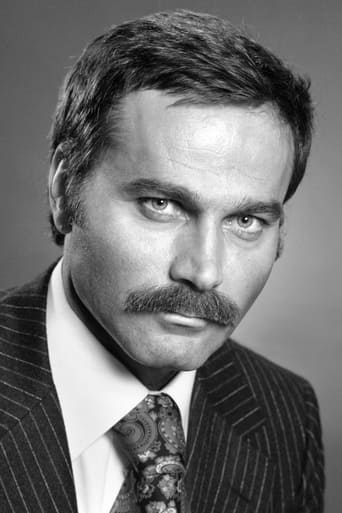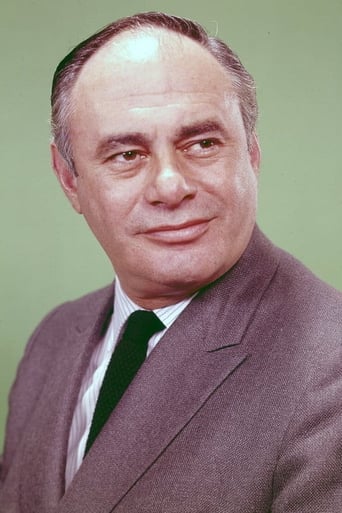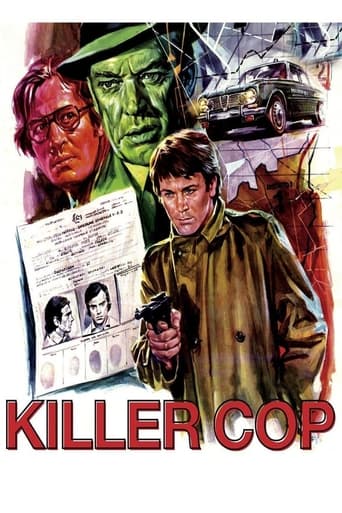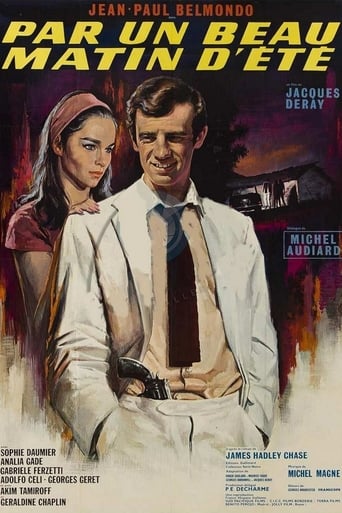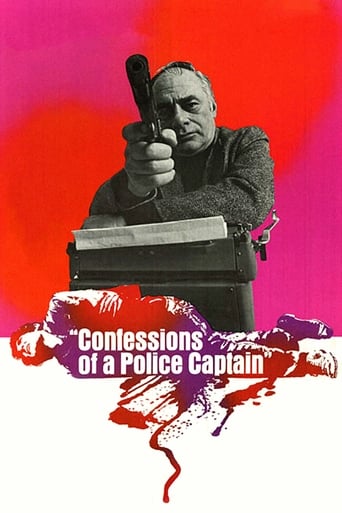
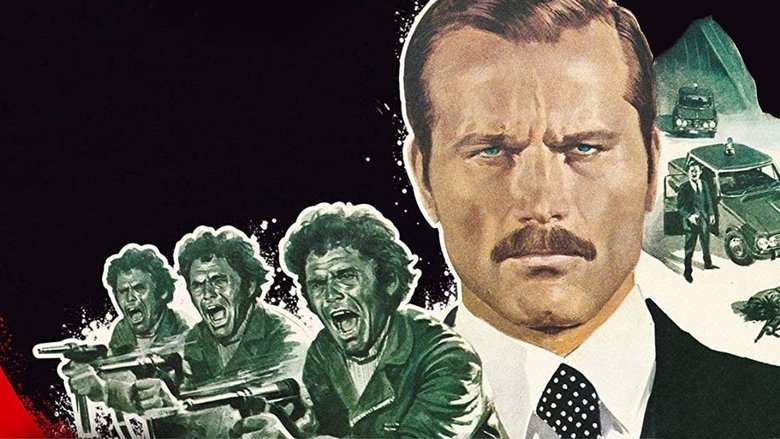
Confessions of a Police Captain (1974)
A police captain arranges the release of a criminally insane prisoner, who soon winds up dead. When the District Attorney takes on the case, he uncovers corruption in the department and vows to take down the man who's responsible.
Watch Trailer
Cast
Similar titles
Reviews
Although it has its amusing moments, in eneral the plot does not convince.
Good films always raise compelling questions, whether the format is fiction or documentary fact.
By the time the dramatic fireworks start popping off, each one feels earned.
The film never slows down or bores, plunging from one harrowing sequence to the next.
A crude vision of rotten and collapsed society by Damiani,where he describe through a old and seasoned cop who are in clash with a young public prosecutor around corruption on political agents in property speculation,each one has a point of veiw,the cop has a realist and prosecutor read under the law,one them will see how the wheels turn...anyway a consistent and solid movie about power and justice in two different perspectives!!Nero and Balsan were in great shape in a stunning performance,highly recommended!!Resume:First watch: 1993 / How many: 2 / Source: TV-DVD / Rating: 8.5
A man in a police uniform kills four people at a construction site. The construction boss gets away... and both are wanted by the police, as the construction guy is known to be a killer who buries bodies inside the cement walls of his work. How do the police captain and district attorney play into this? The film was written and directed by Damiano Damiani, who would go on to make "Amityville 2". It hardly captures his full directing talents. But it is what it is: a police exploitation film.Of course, as far as exploitation films go, this one is pretty tame. No torture to animals, no assaulted women (almost no women at all). This is actually no more subversive than "Dirty Harry" or other police thrillers.There is some strange recurring theme about homosexuality in this film. A district attorney is accused of being gay and corrupting minors (it is implied he touches boys). There are two guys dressed very flamboyantly chased down by state police. I am not sure what Italy's take on homosexuality was, but it plays an interesting part in this film that would not be able to work if redone today.This movie is actually pretty good, and one of the better films available in the Grindhouse Experience box set. I would recommend it, and hope that some day it gets a decent cleanup job. Its only real failing is that it ends rather abruptly.
I'm a big fan of Italian cop flicks, but Confessions of a Police Captain actually doesn't contain many of the things that I love this type of movie for. Damiano Damiani's film is an early example of the Polizi flick and has the rare accolade of not following on the heels of Don Siegel's masterpiece Dirty Harry. The film is a rather more sober affair than what I'm used to from this sort of film and doesn't feature the things such as car chases, gun fights and fistfights that other films in this genre feature in droves; but this is made up for by the fact that the director has created a stylish and interesting film that flows well throughout. The plot focuses largely on the mafia that run Italy over and above the law. Our two central characters are Commissioner Bonavia and District Attorney Traini who are investigating mafia occurrences in the city. The plot begins with an attempt on a man's life, and the man later turns out to be D'Ambrosio; a man high up within the mafia. The two law enforcers appear to be on the same page in fighting the crime in the city...Damiano Damiani was apparently quite a prolific crime film director in the seventies; although the only film I'd seen from him prior to this one was the abysmal Amityville II. It's clear that he has a real flair for this sort of film, however, as Confessions of a Police Captain is perfectly pitched and very professionally done. The fact that the film doesn't feature the things that usually make these films exciting may be a hindrance for some people, but in my opinion; the film has more than enough going for it elsewhere. The two central performances are one of the film's strongest elements. American actor Martin Balsam is fantastic as the police commissioner, but even better than him is Franco Nero as the district attorney. I've seen a lot of Franco Nero films and every time I see him, I become more impressed. He's a very versatile actor who seems to be able to play just about any role and once again he gives a fantastic lead performance. The commentary on justice is well thought, although I have to admit that I wasn't keen on the ambiguous ending. Overall, this is at the very top of Italian cop flicks; while it doesn't fit in with some of the better known examples, it's hard to deny that it is a gem of a movie.
As was the case with L'ISTRUTTORIA E' CHIUSA: DIMENTICHI (1971), this too proved different to what I had been anticipating - as Martin Balsam is the nominal police-officer hero, while lead Franco Nero is merely an investigating magistrate! When Balsam is bumped off, the film follows Nero's actions but ends on an ambiguous open-ended note. However, Balsam is excellent as the unorthodox and determined Commissioner; Nero, on the other hand, occasionally overacts as the flustered State representative. Marilu' Tolo has a small but pivotal role, and her death sequence is particularly mean.Despite the poliziottesco ambiance, it's far less action-oriented than usual but all the more classy and compelling for this reason; still, when action is required by the narrative, the film rises to the occasion. The complex plot (involving Balsam's backstory told in intermittent flashbacks) takes some effort to follow, but the rewards are reaped eventually. As usual for this sort of film, Riz Ortolani's score is a notable asset. By the way, not only is the surname of Nero's superior, a judge, Malta but other surnames here - such as Bonavia (Balsam's character) and Rizzo - are also typically Maltese!
